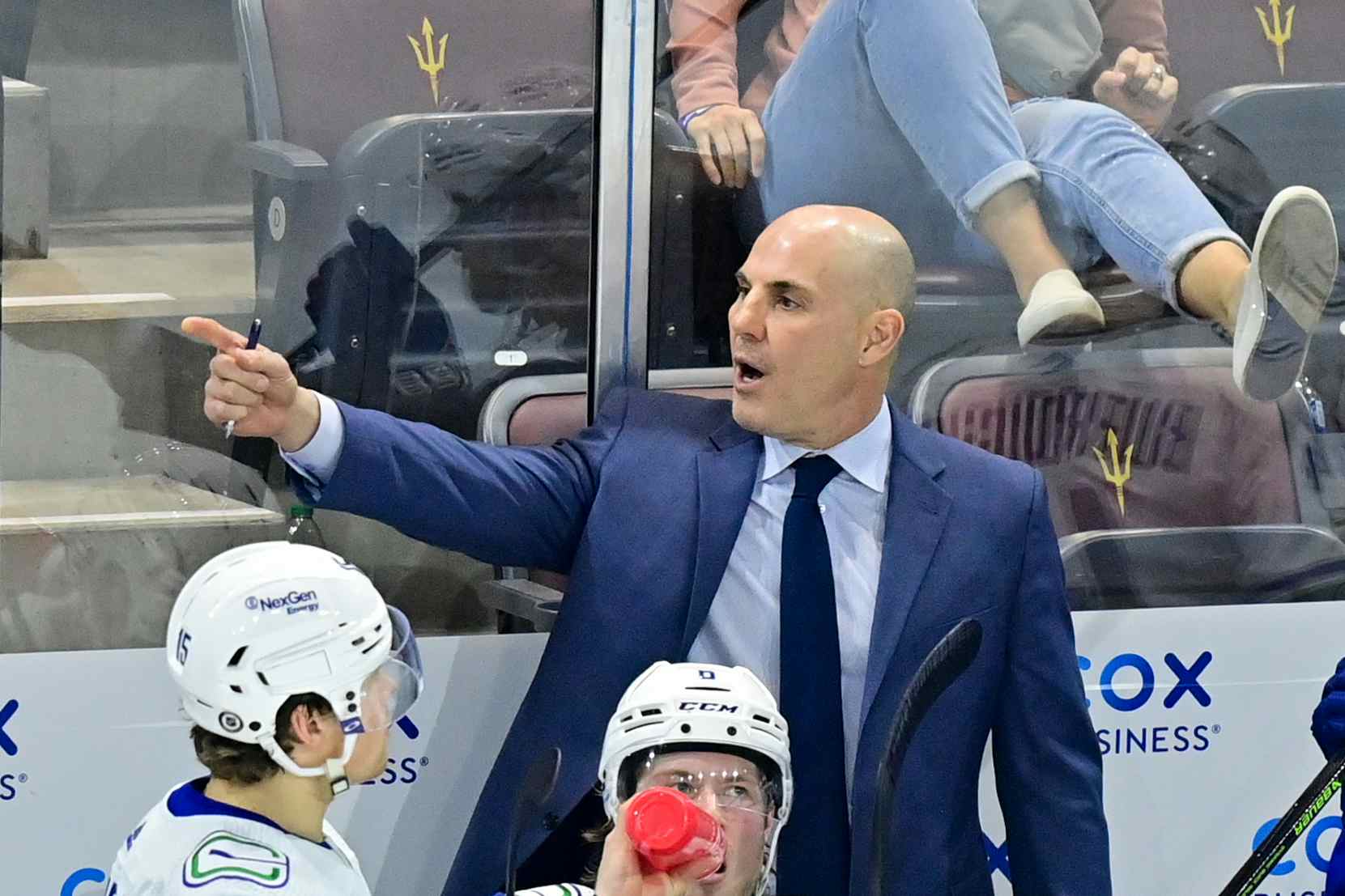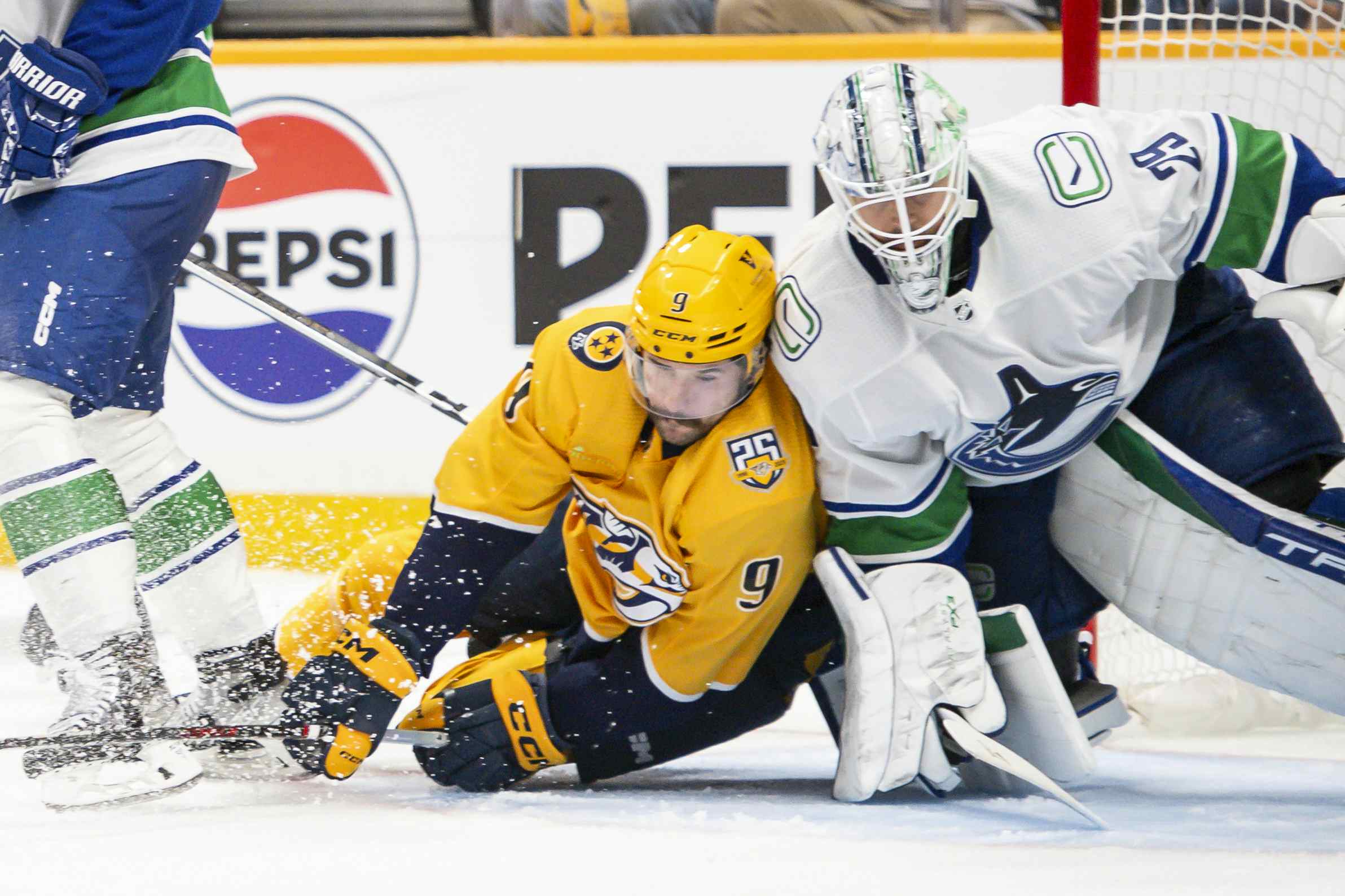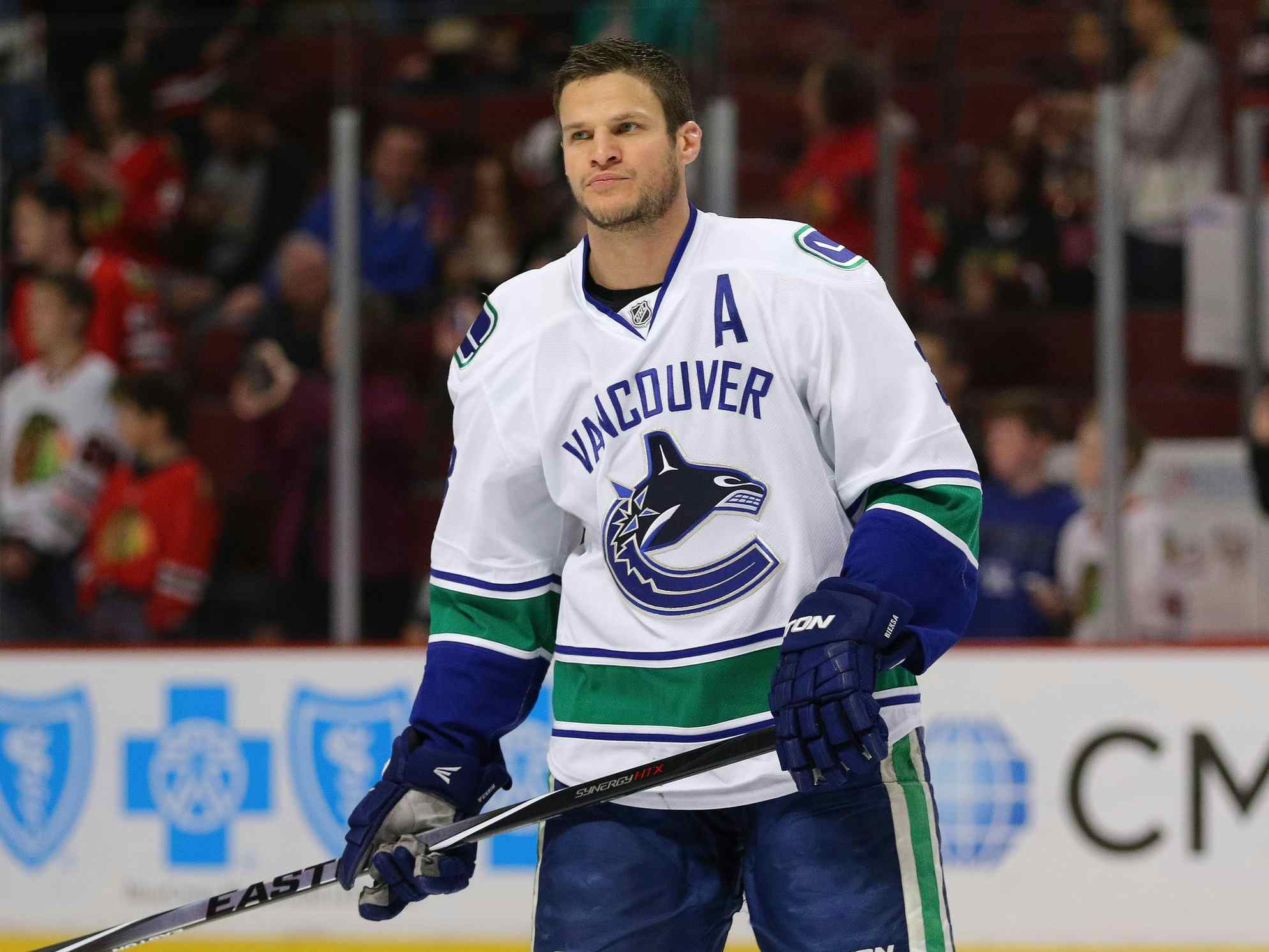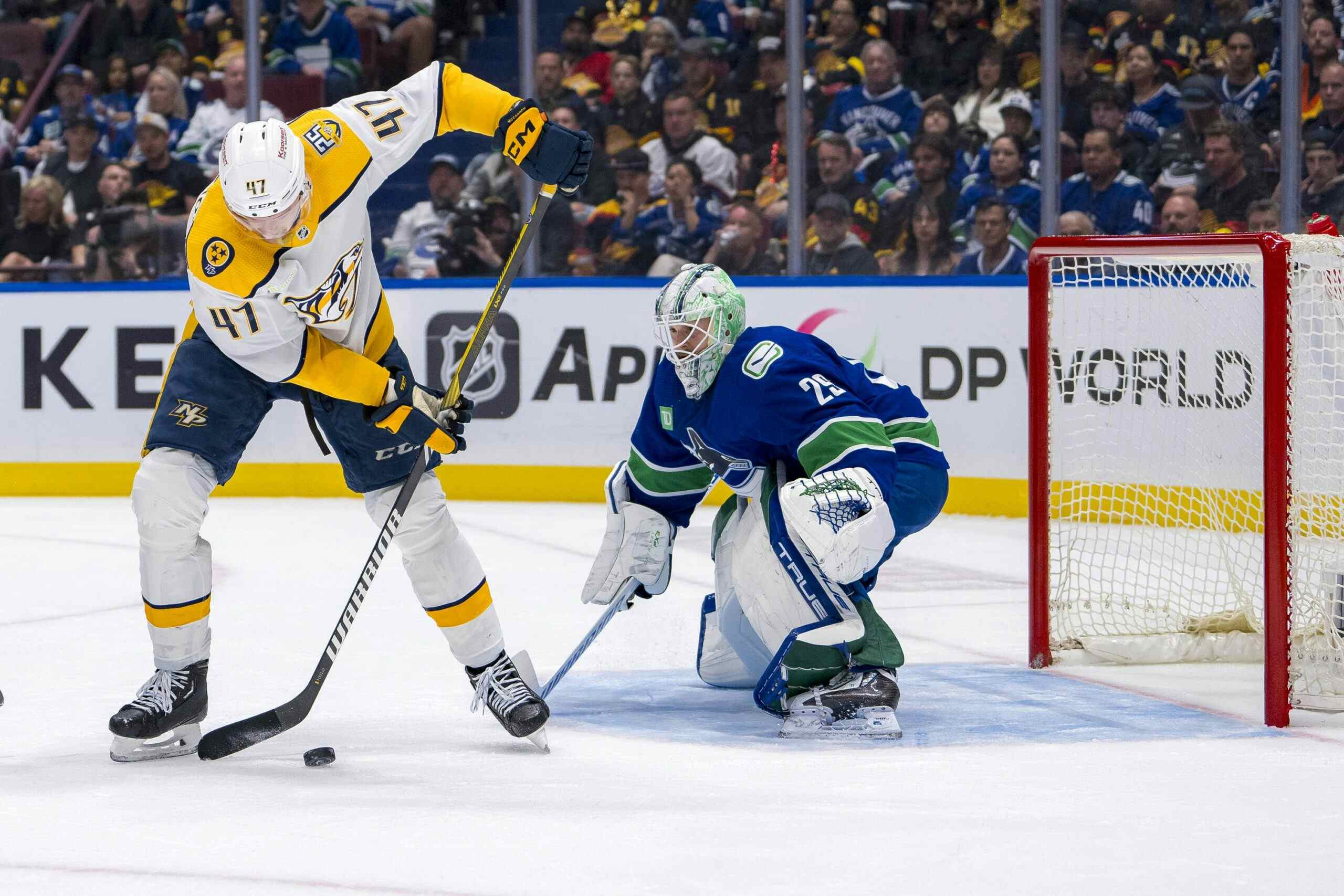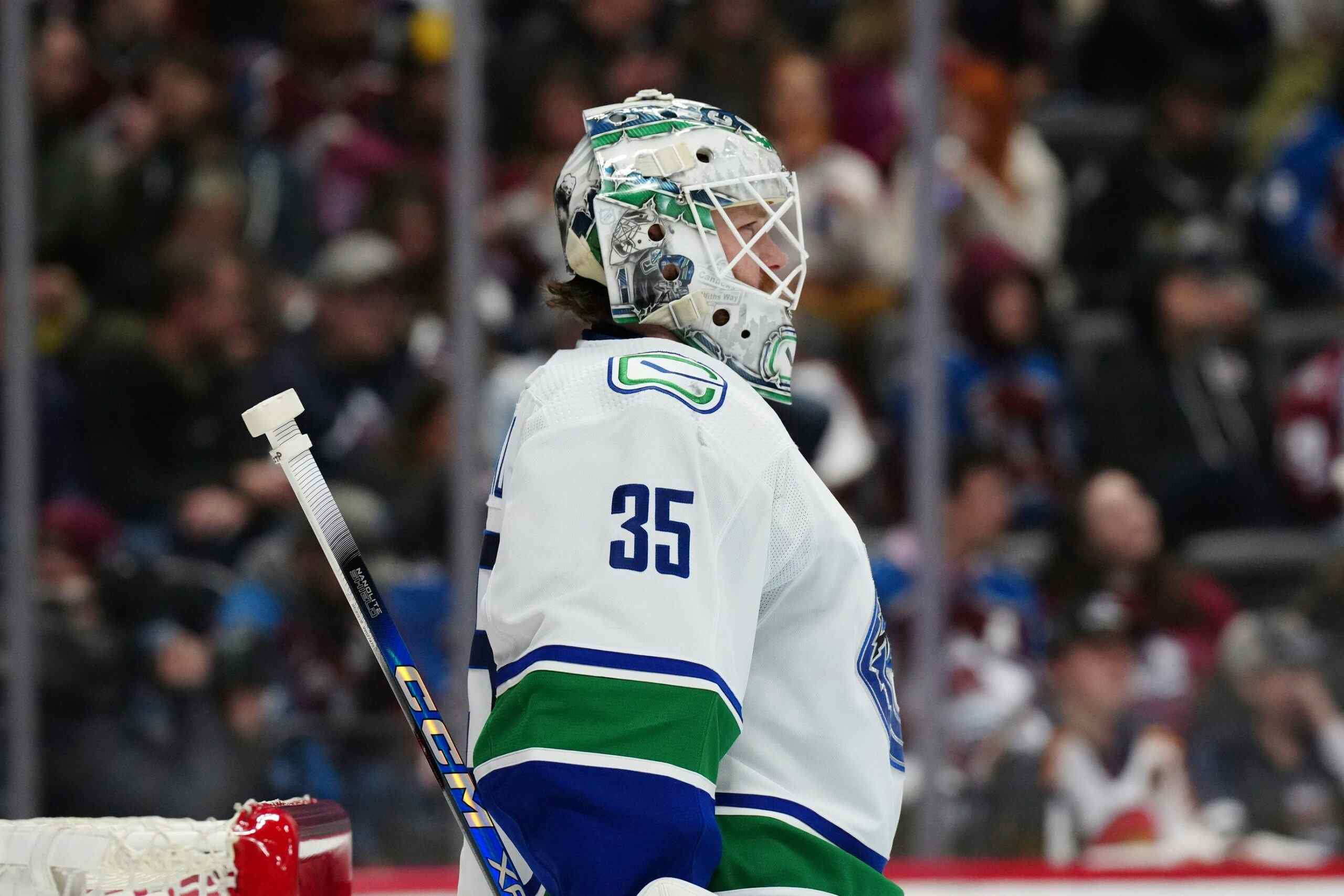Patrick Burke on You Can Play’s focus, gendered insults, and Kesler’s Upcoming PSA
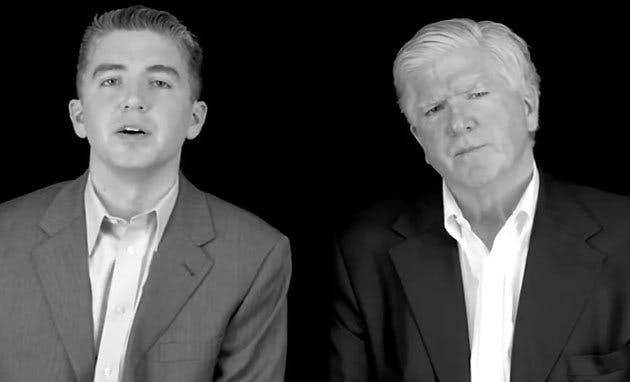
You Can Play President Patrick Burke (left) and his father Brian from a YCP PSA from earlier this year.
Stick-tap to Puck Daddy for the screen grab.
Editors note: Patrick Burke is a scout for the Philadelphia Flyers and the President of the You Can Play Project, an organization that was founded in honour of Patrick’s openly gay brother Brendan, who perished in a tragic car accident on February 5th, 2010. Over the past several months, Patrick and You Can Play have been producing a series of public service announcements starring some of the biggest names in the hockey world. These PSAs have one simple message: an athlete’s sexual orientation shouldn’t and doesn’t matter: if you can perform on the ice (or on the field, or on the mound, or on the hardwood) you belong there: "if you can play, you can play."
It’s an apolitical message, a message of tolerance and respect. The goal is to combat homophobia in the locker room, and to create an environment where gay athletes, at the professional or amateur level, can feel safe to come out to their teammates and to the public.
Tomorrow, You Can Play will roll out another PSA, starring Canucks centre and Selke winner Ryan Kesler. Earlier today, we caught up with Patrick and chatted about how Kesler is a perfect fit for the campaign, about gendered insults in sports, about the importance of You Can Play remaining an apolitical movement, and about how you’re not going to accomplish your goals, if you’re constantly getting outraged.
Thomas Drance: I talked about this with several of Canucks Army’s openly gay readers on Twitter, and we all agreed that Kesler’s style of play, and his reputation (which is in-line with a swashbuckling alpha-male archetype) makes him a perfect YCP spokesman. Would you agree?
Patrick Burke: Yeah, he’s got all of the things that draws us to want a guy to speak out. The way he plays, the heart, the relentless style, the leadership that he shows, and the respect that he has both within the Canucks organization and around the league. Those are the things that we’re looking for in players who are going to be the face of You Can Play.
TD: My next one is a tough question. In contrast to Kesler’s reputation, there are the Sedin twins, who despite being two of the best players in the world and tough as nails, are often and unfairly ridiculed as "women" and "soft," both by opposing fans and worse, some in the media.
I’m curious as to whether or not you would place the misguided gendered insults often hurled at the twins, under the same general umbrella as the wider goals of You Can Play?
PB: I mean, the twins have a Hart Trophy, a couple Art Ross trophies, they’ve been to the finals – so anyone who wants to insult what they’ve done for the Canucks is missing the point.
As for the larger issue with gender insults, it’s a difficult and somewhat complex issue. I absolutely agree with and understand the idea that when media members or fans are using the female gender to act as an insult, that is rightly viewed as an insult to women in general. That is, in a lot of ways, in-line with what we’re doing; but I also think that it’s almost a harder battle than getting guys to stop using homophobic slurs, because it’s just so ingrained in the culture of sport.
I mean, if you’re the coach and you want to motivate your guys you say, “you’re playing like girls” you know or “you’re playing like women out there.” I think it’s more ingrained than homophobic slurs if that makes sense. But in the larger sense everyone at You Can Play stands for the idea that talent is all that matters, that gender identity and sexual orientation are side issues to your athletic ability.
TD: The other day, the @strombone1 twitter account – a feed largely believed to be run by Roberto Luongo – used the word "gay" on Twitter to describe something negatively (as weak or lame). He quickly deleted the tweet, and apologized profusely in public, and in private to several of his gay followers. You quickly vouched for Luongo as an ally on Twitter, saying: "If we’re jumping all over everyone who has used slurs before, I’ll have to resign."
Now the sentiment beneath your comment there hints at a very forgiving outlook on how to foster a spirit of tolerance and respect. This is a two-part question, first off: what advice would you give someone who publicly slips up, on how to handle the fall out?
PB: My policy is one of forgiveness because I’ve been there. For years I was the athlete using homophobic slurs, casually and regularly. Obviously I feel bad about that now, but I also know that if every time I’d done that someone had been there screaming and yelling and calling me an ass-hole, that it wouldn’t have been productive. So when athletes, or fans, or anonymous Twitter accounts use homophobic slurs, we try – so long as they show they’re learning from the mistake – to support them.
We’ve all been there, you know? If we’re going to go get the pitchforks every time someone does that, then You Can Play is going to need a new President because I’m out!
As to my recommendation for what an athlete or someone should do is: apologize. You said it, you screwed up, so say that. “I used that word, I shouldn’t have done that, I apologize” and then don’t use it again. The only time athletes end up getting bogged down with this issue is when they do the half apology thing “oh I apologize if anyone was offended.” Just say “I screwed up, I shouldn’t have used that word, I won’t use that word again, I’m sorry,” and then it’s a non-issue.
TD: Secondly: because you seem to have a nuanced view on this issue, what advice would you give to YCP’s allies on how to productively deal with someone who isn’t spewing hate, but is maybe, clumsily using "gay" in a negative light?
PB: By now we’ve got enough videos out there that you can direct them towards something like that. I genuinely do not believe that yelling, and screaming, and calling someone an ass-hole is going to get you the result that you want. Expressing, “hey you know, words like that have a negative affect, and mean something” is a lot more effective than, as I said before, getting the torches and going “Hey! Let’s get that guy.”
TD: With the success of the YCP movement’s message, are there any plans for the organization to get more involved in political issues, like marriage equality, or unbiased healthcare for transgendered patients?
PB: No not ever.
TD: Never? Just stay focussed?
PB: We will only do sports for as long as this program lasts. We will never stray from it. None of us will ever say we like a particular political candidate or policy or anything. We do nothing political because we want athletes and fans from all political beliefs to be comfortable standing with You Can Play. Treating your teammates, fans and coaches with respect, and not using homophobic slurs are the only things we ask.
As far as we’re concerned, it can be completely consistent for someone who says that they will treat their athletes with respect, that they won’t use homophobic slurs and that they would be comfortable having a gay teammate, and would support a gay teammate – but for whatever reason they don’t believe in marriage equality. We don’t see any intellectual inconsistency there.
TD: Is it an accessibility judgement that leads you to that conclusion? Or is it that one of the reasons You Can Play has been so powerful is just the raw simplicity of the message? Are you reluctant to dilute that, or is it about building a big tent?
PB: It’s to shut the media up!
It’s so that when our guys stand up and do a PSA, the first question they get isn’t “what’s your opinion on marriage equality”, “what’s your opinion on equal benefits for same-sex partners”, “what’s your opinion on this”… So Ryan Kesler’s PSA is coming out later this week, the first question he gets will not be, “do you support gay marriage”, “do you support this” or “do you support that.” The first question will be “what made you want to stand up for your gay teammates.”
So our focus is about getting the media to stay the hell away from our athletes with questions that have no bearing on sports. If you’re an organization that says “we really like equality in sports and we also support X,Y and Z – and we’re opposed to A,B and C” then when an athlete stands up with you, they’re going to get asked about all of those things. We don’t want that. We’re staying on sports so our athletes can feel comfortable supporting a very narrow, but important message.
TD: As a follow up, I saw you put out a call for media members to join YCP to do a PSA, and I watched the TSN bit assuring any players who would come out of the closet that their orientation wouldn’t change the focus of TSN’s coverage. Generally have you been happy with the way the media has reported on and dealt with You Can Play?
PB: Yes.
The media members from the hockey world have been great. They’ve understood what we’re doing, they’ve understood why we’re doing it. Obviously there have been a few times when somebody has used the wrong term, but the media has been great.
They understand that their role in the sports world is often to help control or shape reaction, and form what the message will be. They’ve been more than willing. Since I announced the media video we’re doing, we’ve had 35 or 40 something e-mails and I actually had to bring on a new intern to help me manage the project.
Recent articles from Thomas Drance

